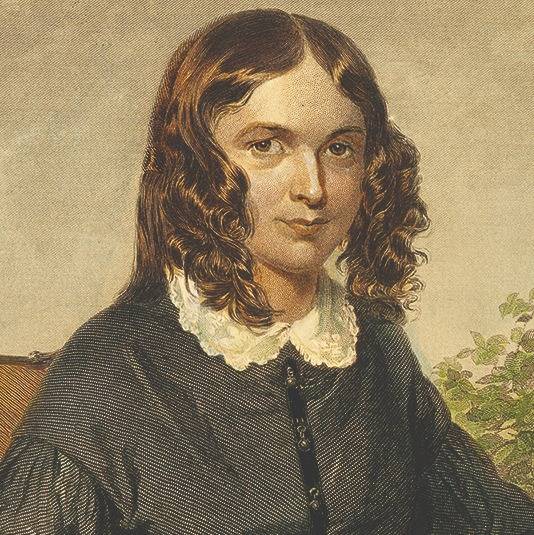THE CLOSING OF THE WESTERN MIND
Charles Freeman
Heinemann
481 pp
£25.00
Classical scholar Charles Freeman begins this book with two telling quotations. In the fifth century BCE Euripides wrote: "Blessed is he who learns how to engage in inquiry, with no impulse to harm his countrymen or to pursue wrongful actions, but perceives the order of immortal and ageless nature, how it is structured." And nearly one thousand years later, Augustine: "There is another form of temptation, even more fraught with danger. This is the disease of curiosity... It is this which drives us to try and discover the secrets of nature, those secrets which are beyond our understanding, which can avail us nothing and which man should not wish to learn."
The glory of Greece and the Hellenised world, Freeman argues, was its delight in rational enquiry. Reason was on the march. Probing "the order of nature" by observation, experiment and inference drawn from empirical evidence was no impious meddling with the concerns of the gods but the result of a maturing recognition that the proper study of humankind was humanity and the natural world of which humanity is part. Greek rationalism spread through the Roman empire, where it reached new heights in the medical science of Galen, the philosophy of Plotinus and the observational astronomy of Ptolemy.One beneficial result of cool, rational thinking was that it came to be seen as clearly unreasonable that any one of the many gods, cults and sundry spiritualities which flourished in the ancient world could be privileged as possessing a monopoly of truth. So pagan gods and their followers practised peaceful co-existence, and the pragmatic citizen might worship several gods at a time.
Rationalism did not deny religion, let alone attack it, but it distinguished between mythological and empirical truth. The mythical gods gave imaginative expression to human needs, fears and desires, and cultic practices (worship) bound communities together. But religious culture was one thing and reasoned enquiry another. Not only the philosophers but the man in the forum knew the difference.
Then, in the first century CE, enter Paul, a man convinced that there is but one way, one truth, one light, and it is not the way, truth and light of reason. Paul scathingly rejects "the wisdom of the wise" by, which, Freeman argues, he means the Greek tradition of free enquiry. As rival forms of Christianity spread through the empire over the next two centuries, the rational tolerance of diverse pagan spiritualities was displaced by murderously rival forms of irrational dogmatism, to such an extent that by the fourth century the emperor Constantine felt obliged to safeguard the unity of the empire by imposing one particular brand of Christian religion as Truth to be accepted by Faith, precluding any further need for free enquiry.
This, for Freeman, is "the closing of the Western mind", the fall of reason and its replacement by faith: faith which no longer asks questions but which, in Augustine's words, sees rational enquiry as "the disease of curiosity" about matters which "avail us nothing and which man should not wish to learn". Freeman offers numerous examples of the conflict between faith and reason at this turning-point for Western civilisation, teasing out the development of Christian anti-Semitism, the origins of the religion-science conflict, the causes of Christianity's discomfort with sex, and the roots of issues which continue to haunt and disfigure the Christian churches to this day.
"What I wish, that must be the canon" decreed Constantius II in 355, after eliminating rival members of his family to become both Emperor and defender of the faith. Bishops who toed his line were given land, tax exemptions and dictatorial powers. Those who resisted were violently persecuted. Regional governers were made bishops to strengthen their authority over the churches. Ambrose, for instance, wasn't even a Christian when he was made a bishop: his baptism came later! The spirit of free enquiry was clearly incompatible with such totalitarianism, and was declared the sin of pride, perhaps even the mysterious "sin against the holy ghost": the one sin which was unforgivable.
Fourth century synods were means by which the Emperor imposed his authority on squabbling churchmen. "If truth be told," wrote Gregory of Nazianzus wearily after a series of them, "my attitude towards all gatherings of bishops is to avoid them. I have never seen a good outcome to any synod, or a synod which produced deliverance from evils rather than the addition to them... Rivalries and manoeuvres always prevail over reason."
Freeman suggests that, by reviving Aristotle in the thirteenth century, Thomas Aquinas encouraged a restoration of reason in Western civilisation. Greek philosophical traditions were also preserved within Islam and filtered back into the West. The Enlightenment arguably ended a millennium in which faith had had the stage to itself. But free enquiry is still discouraged among the faithful, and irrational and unreasoned faith continues to pervade not only organised religion but the host of 'new age' spiritualities which have forgotten the critical distinction between mythological and empirical truths.
One gripe. Although beautifully written, the book is poorly proof-read. There are too many minor mistakes, which need correction before a paperback edition.
The Closing of the Western Mind is available from Amazon (UK).

